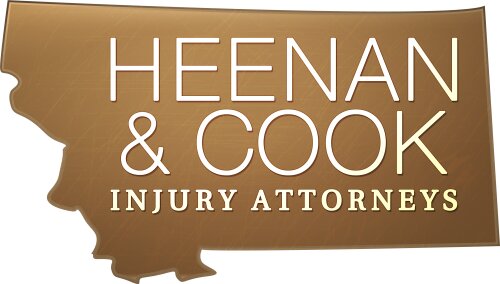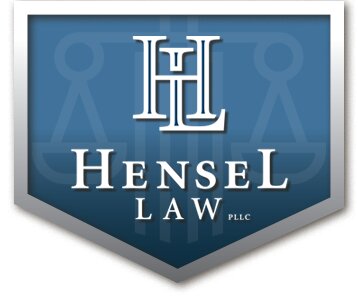Best Insurance Lawyers in Billings
Share your needs with us, get contacted by law firms.
Free. Takes 2 min.
List of the best lawyers in Billings, United States
1. About Insurance Law in Billings, United States
In Billings, as in the rest of Montana, insurance law governs how insurers issue policies, process claims, settle disputes, and protect consumers. The state regulates insurance through statutes, administrative rules, and agency enforcement. Local practices in Billings are shaped by Montana law and the actions of the Montana Department of Insurance.
The primary regulator for insurance matters in Montana is the Montana Department of Insurance. This office licenses insurers, reviews rate filings, and enforces consumer protections. For detailed guidance, visit the department's official website. Montana Department of Insurance.
State statutes define the rights and obligations of policyholders and insurers. In Montana, the core statutes are found in the Montana Code Annotated, particularly Title 33 which covers Insurance. The Montana Legislature maintains up-to-date statute information on its site. Montana Legislature.
Montana regulates insurance on a state level to balance consumer protections with insurer solvency and business necessity. Court interpretations of these laws shape daily disputes in Billings and across the state.
Source: Montana Department of Insurance and Montana Legislature
For general guidance on how insurance law works in Billings, consider consulting a local attorney who understands Montana statutes and regulations. You can also review national insights from the National Association of Insurance Commissioners to see how Montana fits into broader regulatory trends. NAIC.
2. Why You May Need a Lawyer
There are concrete, real world scenarios in Billings where a licensed attorney can make a meaningful difference. The following examples reflect issues that residents have faced in recent years.
- Hail and wind damage to a Billings home with a disputed claim. If your insurer delays payment or denies coverage for damage you believe is covered, a lawyer can review your policy and negotiate on your behalf.
- Auto accident claims involving uninsured or underinsured motorists. When liability or medical coverage is misinterpreted, legal counsel can help you pursue appropriate compensation and ensure policy terms are applied correctly.
- Health and medical insurance denials or insufficient reimbursement. If a hospital, clinic, or doctor bill is denied or reduced, a lawyer can challenge the decision and pursue required payments or appeals.
- Life insurance beneficiary disputes after a death. Judges may need to interpret policy language, beneficiary designations, and repayment requirements when disputes arise.
- Small business insurance claims, including property, business interruption, and liability coverage. A commercial policy dispute in Billings may require coverage interpretation beyond personal lines.
- Persistent underinsurance or gap coverage in a mortgage or rental property. An attorney can help review coverage levels and advise on rider options to close gaps.
Tip: Starting with a local attorney who understands Montana statutes and how insurers operate in Billings improves the chances of a favorable outcome. For authoritative regulatory context, see the Montana Department of Insurance and NAIC resources linked in this guide.
3. Local Laws Overview
Montana regulates insurance primarily through state law and department rules. The following are relevant law names you may encounter when dealing with insurance issues in Billings.
- Montana Code Annotated Title 33 - Insurance - The core statutory framework for insurers, policy forms, rates, and consumer protections in Montana. This code governs how policies must be issued and how claims are processed.
- Montana Code Annotated 33-18-101 et seq. - Unfair Insurance Practices - A section focused on prohibited practices by insurers and actions available to consumers when protection is needed against unfair conduct.
- Montana Administrative Rules for the Department of Insurance - Implementing rules that regulate insurer operations, rate approvals, and consumer complaint handling under the department's oversight.
Key dates and updates flow from the Montana Legislature and the Montana Department of Insurance. The statutes and rules are routinely amended to reflect changing market conditions and consumer needs. For current texts and amendments, consult the official sources below. Montana Legislature and Montana Department of Insurance.
Recent trends in Montana insurance regulation emphasize clearer claims handling, enhanced transparency for timing and documentation, and stronger consumer protections in bad faith scenarios. These trends are reflected in department guidance and ongoing legislative updates. For more context, see the NAIC overview of state regulation and Montana specific materials linked above. NAIC.
4. Frequently Asked Questions
What is the difference between an insurance policy and a claim?
An insurance policy is a contract outlining coverage, limits, and conditions. A claim is a request to the insurer to pay for a loss under the policy terms. The policy controls what is covered and how benefits are paid.
How do I file a complaint about an insurer in Montana?
What is bad faith in Montana insurance disputes?
Bad faith occurs when an insurer handling a claim is unreasonably delayed or fails to properly investigate and settle a claim. Montana law provides remedies for insureds who experience bad faith handling.
How long does a typical homeowners claim take to resolve in Billings?
Resolution times vary by claim type and complexity. Some straightforward claims settle in 30 to 60 days, while complex disputes may take several months or longer, depending on documentation and negotiations.
Do I need an attorney to handle an insurance dispute?
While not required, an attorney can help interpret policy terms, review denials, communicate with the insurer, and pursue negotiations or litigation when needed.
What is the typical cost to hire an insurance lawyer?
Can I represent myself in an insurance dispute?
Yes, you may represent yourself, but an attorney can improve the likelihood of a favorable outcome, especially in complex coverage questions or litigation.
How do Medicaid or private health plan denials get appealed?
Health plan denials usually involve an internal appeal, potential external review, and, if needed, legal advice for state or federal options depending on the plan.
What is the timeline to appeal a denial of coverage?
Should I hire a local Billings attorney or one from outside the area?
What documents should I gather before meeting a lawyer?
Is there a difference between state and federal insurance protections?
5. Additional Resources
The following official resources provide guidance, regulatory context, and points of contact for insurance matters in Montana.
- Montana Department of Insurance - Regulates insurers, licensing, rate filings, and handles consumer complaints. Official site.
- Montana Legislature - Access to current statutes, bill history, and legislative changes affecting insurance. Official site.
- National Association of Insurance Commissioners (NAIC) - Provides model laws, consumer information, and regulator guidance. Official site.
6. Next Steps
- Identify your issue and collect relevant documents within 1 week. Gather the policy, denial notices, claim correspondence, and repair or medical invoices.
- Search for a local attorney who handles insurance disputes in Billings. Focus on those with experience in consumer protection and bad faith claims. Allow 1-2 weeks for initial research.
- Schedule a consultation to discuss your case. Bring all documents and a summary of communications with the insurer. Expect a 30 to 60 minute meeting.
- Have the attorney review your policy language and claim history. Ask for a clear plan, timeline, and expected costs for next steps. This typically takes 1-2 weeks after your meeting.
- Decide on a strategy with your attorney, including potential settlement negotiations or formal complaints. Set realistic milestones and a budget for the process.
- File regulatory or legal actions if needed. Your attorney can advise whether to pursue a complaint with the Montana Department of Insurance or initiate litigation. Timelines vary by action.
- Review the case progress regularly and adjust plans as needed. Maintain ongoing communication with your attorney and the insurer until resolution. Expect updates at defined intervals.
Notes on sources and further reading: For regulatory context and current statutes, see the Montana Department of Insurance and Montana Legislature pages cited above. National guidance from the NAIC can help you understand state level trends in insurance regulation. Montana Department of Insurance, Montana Legislature, NAIC.
Lawzana helps you find the best lawyers and law firms in Billings through a curated and pre-screened list of qualified legal professionals. Our platform offers rankings and detailed profiles of attorneys and law firms, allowing you to compare based on practice areas, including Insurance, experience, and client feedback.
Each profile includes a description of the firm's areas of practice, client reviews, team members and partners, year of establishment, spoken languages, office locations, contact information, social media presence, and any published articles or resources. Most firms on our platform speak English and are experienced in both local and international legal matters.
Get a quote from top-rated law firms in Billings, United States — quickly, securely, and without unnecessary hassle.
Disclaimer:
The information provided on this page is for general informational purposes only and does not constitute legal advice. While we strive to ensure the accuracy and relevance of the content, legal information may change over time, and interpretations of the law can vary. You should always consult with a qualified legal professional for advice specific to your situation.
We disclaim all liability for actions taken or not taken based on the content of this page. If you believe any information is incorrect or outdated, please contact us, and we will review and update it where appropriate.
Browse insurance law firms by service in Billings, United States
Billings, United States Attorneys in related practice areas.









